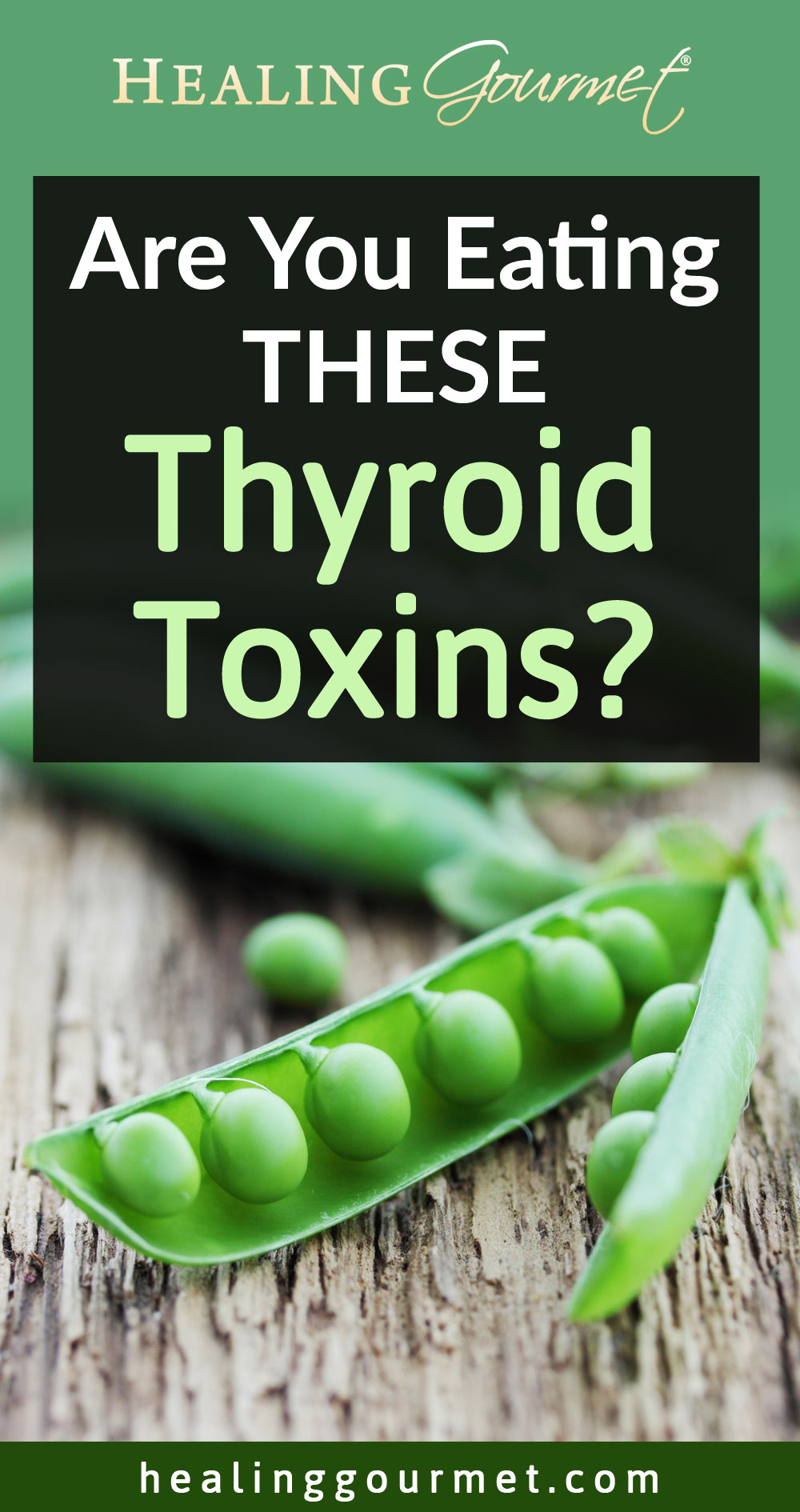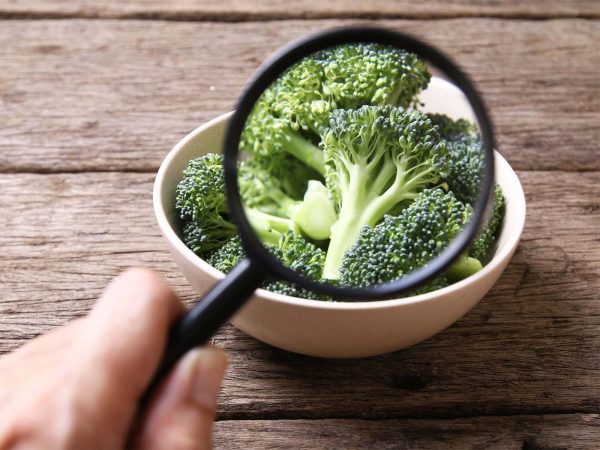Are Toxins Harming Your Thyroid?
It is a sad fact that many people today go through life with low energy levels, fatigue, subtle aches and pains, mood swings, depression, “brain fog” and a myriad of other symptoms. These symptoms are so common that many of us just accept it as part of life. The cost we pay for “getting older.”
But these symptoms are not a normal part of life and they are not an unavoidable “side-effect” of getting older. They are the body’s way of telling us that something isn’t right.
If you or someone you love feels this way, there is a good chance that your thyroid has at least something to do with it. The thyroid is a small, butterfly-shaped gland in the base of your neck. And despite its small size, it plays a BIG role in your well-being.
While the thyroid is known for releasing hormones, it is also vitally important for cardiovascular, neurological, and immune and metabolic function.
And unfortunately, our modern environment and food supply are filled with chemicals and contaminants that plague your thyroid and can have a dramatic negative effect on pregnancy and fertility, childhood health, sexual development and your risk for endocrine disorders, cancer, diabetes and obesity.
It’s no surprise that thyroid disease has skyrocketed in the last few decades. In fact, the American Thyroid Association estimates 20 million Americans have some form of thyroid disease.
In this multi-part article, you will discover the specific contaminants found in common foods and household items that affect your health… the simple choices you can make to keep them out of your body… plus natural and effective methods to detoxify your body.
Thyroid Toxins: How Pesticides & Common Chemicals Impact Thyroid Health
The thyroid is often called the “canary in the coalmine” because it is so sensitive and so susceptible to damage from environmental toxins. Researchers believe this is due to the structural similarity of environmental toxins to thyroid hormones.
The thyroid also has a natural affinity for halogens and metals. This is because the thyroid is intended to draw iodine (a halogen) and selenium (a metalloid). These two beneficial compounds help the thyroid to function.
However, not all halogens and metals are beneficial, of course. And when heavy metals or halogens (like fluorine and chlorine) are present, the thyroid will accumulate those elements too!
Let’s consider how common chemicals in the conventional food supply can act as thyroid toxins and impact thyroid health…
The Impact of Conventionally-Raised Foods on Thyroid Function
Pesticides, herbicides and fungicides are chemicals that mimic your body’s own hormones. Unfortunately, however, the signals they send can disrupt your sensitive endocrine system. They also negatively impact thyroid function by:
- Altering genetic expression
- Preventing the thyroid’s uptake of iodine
- Binding to proteins that transport thyroid hormones, and
- Increasing the body’s clearance of thyroid hormone.
Below are a few examples of the research showing how these chemicals impact the thyroid:
- A study published in the American Journal of Epidemiology found that exposure to organochlorine pesticides, fungicides, and the herbicide paraquat, is associated with increased risk of hypothyroidism in women.
- Another study in the same journal evaluated the effects of PCBs (found in farmed fish), hexachlorobenzene (a fungicide), DDT and DDE (pesticides) on thyroid function during pregnancy. The researchers found that both PCBs and hexachlorobenzene (HCB) were associated with significantly lower levels of thyroid hormones.
- A study in Occupational and Environmental Medicine evaluated the effects of organochlorine pesticide exposure in thyroid function of preschoolers. The researchers found that higher blood levels of DDT, PCBs and a pesticide called beta-HCH were associated with lower levels of T3 – a critical thyroid hormone.
- The industrial chemical perchlorate is often found in drinking water, grains, fruits, vegetables and dairy products from animals raised on contaminated soil. Researchers at the CDC found that the presence of perchlorate in urine is associated with decreased T4 hormone and increased thyroid-stimulating hormone (TSH). And the impact was seen from levels previously deemed “safe”. As the name suggests, perchlorate contains the halogen chlorine, which competes with iodine.
Choosing organic produce and grass-fed, pasture-raised meats and wild sustainable seafood, goes a long way to reducing your exposure to biocides. In addition, dietary iodine (from clean, wild seafood and sea vegetables) can help reduce perchlorate toxicity in the thyroid.
How Plastics Impair Thyroid Function
We all know that plastics are polluting our earth. But plastics are not just an eyesore that blights the environment. These chemical compounds negatively impact your health, as well…
- Bisphenol A (BPA) is a common chemical found in can liners and plastic bottles. It is also a hormone mimic that disrupts the endocrine system and can change the thyroid’s structure and reduce its ability to function.
- Phthalates, found in plastics and conventional personal care products, disrupt thyroid function by preventing the binding of thyroid hormones to their receptors.
To reduce your exposure to plasticizers, avoid foods and drinks packaged in plastics. Opt for foods sold in glass containers instead of cans. And never microwave food or store hot food in plastic containers.
The Effects of Common Kitchen Conveniences on Thyroid Function
Common conveniences like non-stick pans, “K-Cups” and chemical hand sanitizer may save time. But this can be at the expense of your health!
- PFOA, the chemical found in the coating of non-stick pans, popcorn bags and turkey-roasting bags, has been found to decrease T4 and lower thyroid function.
- Triclosan, the chemical used in hand sanitizers, was also found to reduce levels of T4.
- Plastic #7 – found in disposable coffee pods – was found to have more estrogenic activity than BPA, according to research published in Environmental Health Perspectives.
Choose natural, safe “non-stick” pans made from cast-iron or enameled cast iron (like Le Creuset), and learn more about safe cookware here. Wash your hands with soap and make a natural spray hand sanitizer with rubbing alcohol and a few drops of essential oil for on-the-go sanitizing. Avoid K-cups and coffee makers with plastic parts. Instead, opt for organic coffee and brew using a pour over with an unbleached cloth liner, French press or stainless steel, stove-top espresso maker.
Protect Your Thyroid by Going Green
By avoiding plastics and nonstick cookware, and opting for organic produce, wild seafood and grass-fed and pastured meats, you can go a long way to reducing our body’s burden of thyroid-hampering chemicals.





Leave a Reply